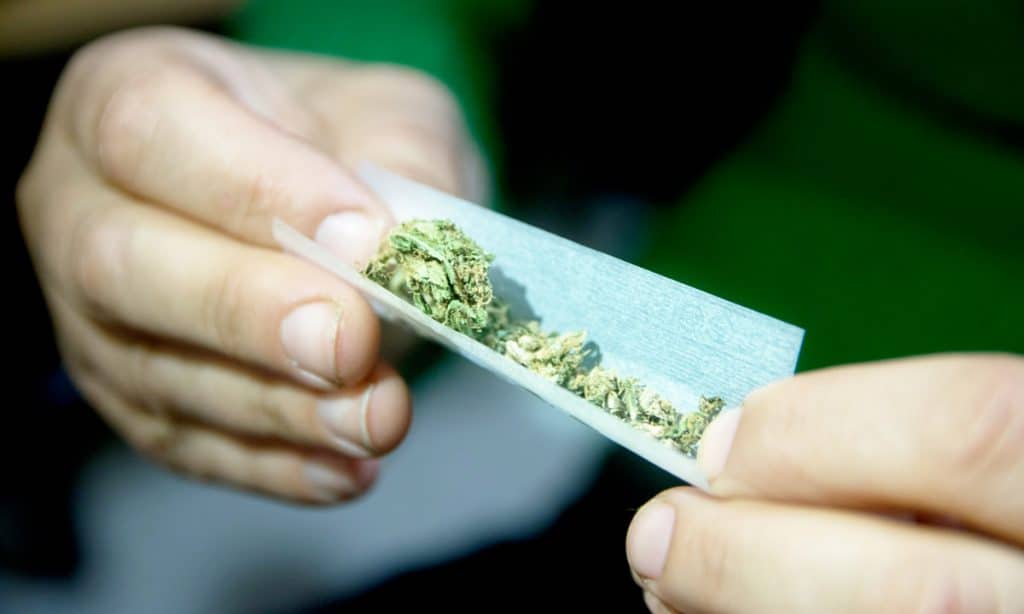From a group of European researchers comes news of the discovery of a super-cannabis compound, a cannabinoid 30 times stronger than THC. It was discovered while they were looking for additional medicinal qualities in a host of cannabinoids among 150 known to exist.
It’s called THCP, and researchers were stunned: “The presence of this new phytocannabinoid could account for the pharmacological properties of some cannabis varieties difficult to explain by the presence of the sole Delta-9-THC.”
And there’s the rub, because that sort of statement plays into the hands of both sides of the cannabis equation.
Smart Approaches to Marijuana (SAM), an anti-legalization organization, usually points to increased use of marijuana by grade-school and high-schoolers as a sign of the bad things in cannabis (inadvertently promoting regulating it for adults, which is what advocates fight for against obstacles from the federal government). They’re cheering an “a-ha” moment as the vaping crisis claims lives, even though the commonly held finding is that these vapes are black market products available to teens because there is no federal regulation. The cartridges are filled with products other than tobacco or cannabis that affect the lungs.
RELATED: Does Overregulation Drive Black Market Marijuana?
Stronger THC in cannabis products is one of the talking points from SAM, and this discovery plays right into that particular wheelhouse.
On the other hand, marijuana proponents are ecstatic because that super THC discovery means there is more and better medicine from this plant, demonstrating the range of the natural wonder of cannabis to the health of mankind. More research could find more cannabinoids to help different human health problems. This discovery plays right into their particular wheelhouse.

But wait a minute: The new super THC discovery was based in part on research at the Military Chemical Pharmaceutical Institute in Florence, creating at least the impression that the military may be considering it as a sort of weapon. It’s happened before.
Years ago, the U.S. government had another super THC product called red oil that they thought could be weaponized for warfare. The thinking was that enemy troops would be so stoned they couldn’t function as a soldier. The experiments were conducted at Edgewood Arsenal, Maryland from 1955 to 1975, with 7,000 soldiers exposed to 250 chemicals, including THC, nerve gas, mustard gas, LSD and PCP.
RELATED: You Have The Highest THC Strain — So What?
And this was not the first time cannabis was tested for potential weaponization.
During World War II, the army tested it as one of the “psycho-behavorial chemical incapacitating agents,” along with LSD. Results were classified, but the assumption is that LSD won out because it was, better at “the establishment of psychological control.” , according to the U.S. Army Surgeon’s office.
So the fact remains, this new super-strong THC development is giving researchers pause to consider that THC and cannabinoids have possibly made a leap into expanding more of the good that they can do, alongside a consideration by the military of the potential harm they can do with it. Stand by.
- SEO Powered Content & PR Distribution. Get Amplified Today.
- PlatoData.Network Vertical Generative Ai. Empower Yourself. Access Here.
- PlatoAiStream. Web3 Intelligence. Knowledge Amplified. Access Here.
- PlatoESG. Automotive / EVs, Carbon, CleanTech, Energy, Environment, Solar, Waste Management. Access Here.
- PlatoHealth. Biotech and Clinical Trials Intelligence. Access Here.
- ChartPrime. Elevate your Trading Game with ChartPrime. Access Here.
- BlockOffsets. Modernizing Environmental Offset Ownership. Access Here.
- Source: https://thefreshtoast.com/cannabis/do-we-need-supercharged-cannabis/#utm_source=rss&utm_medium=rss&utm_campaign=do-we-need-supercharged-cannabis



